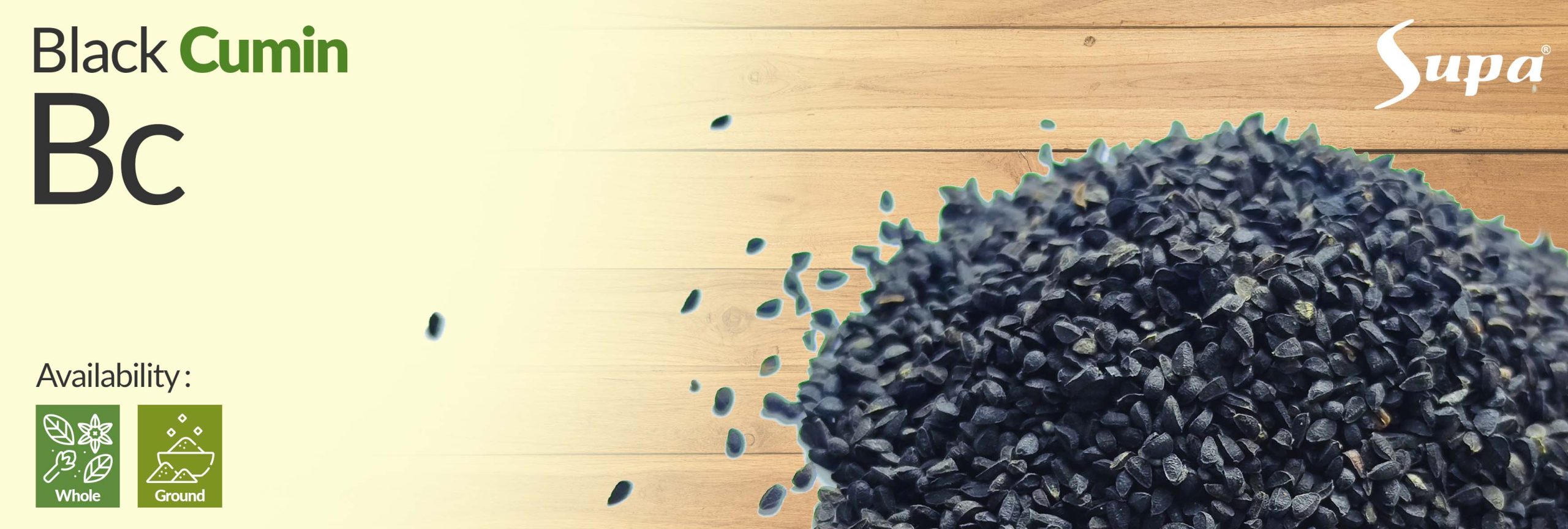
Black cumin, scientifically known as Nigella sativa, has a rich history steeped in ancient civilizations and traditional medicine practices. Native to the Mediterranean region, Southwest Asia, and North Africa, black cumin seeds have been highly regarded for their culinary, medicinal, and even symbolic significance. In historical records, these seeds were mentioned in texts dating back to ancient Egypt and were found buried in the tomb of Tutankhamun, reflecting their esteemed value.
Black cumin seeds have been used in traditional medicine for centuries, particularly in Ayurveda and Islamic traditional medicine. They were believed to possess a range of health benefits, from aiding digestion and respiratory health to supporting the immune system. The seeds contain bioactive compounds like thymoquinone, which have been studied for their potential antioxidant, anti-inflammatory, and antimicrobial properties.
In modern times, black cumin seeds have gained recognition for their potential health benefits, leading to increased research into their various properties. They are also used as a spice in some cuisines, adding a nutty and slightly peppery flavor to dishes. The historical reverence for black cumin seeds and their enduring role in both culinary and medicinal practices highlight their remarkable journey from ancient remedies to contemporary exploration of their potential contributions to well-being.
Flavor: Black cumin has a complex flavor profile that is often described as slightly bitter, earthy, nutty, and peppery. It is distinct from regular cumin and is not as intensely aromatic. The bitterness is mild and can add depth to dishes without overwhelming the palate. Taste: The taste of black cumin is characterized by its mild bitterness and nutty undertones. While it has a hint of spiciness, it is generally not as pungent as other spices like black pepper. The taste can vary based on factors such as the variety of black cumin and its processing. Aroma: Black cumin has a mild and less aromatic scent compared to regular cumin. The aroma is not as overpowering and doesn't have the same strong warming effect. Instead, the aroma of black cumin is subtle and can be described as earthy and slightly nutty.
Culinary Spice: Black cumin seeds are used as a spice in various cuisines, particularly in Middle Eastern, Indian, and North African dishes. They have a distinct flavor profile that is earthy, slightly bitter, and peppery. The seeds are often used to season bread, rice dishes, curries, and salads. Herbal Remedy: Black cumin seeds have been used in traditional medicine for their potential health benefits. They are believed to have various medicinal properties, including anti-inflammatory, antioxidant, and immune-boosting effects. They are often used in herbal remedies and natural health products. Digestive Aid: Black cumin seeds have been traditionally used to support digestion and alleviate gastrointestinal discomfort. Some people consume them or drink black cumin tea to help with digestive issues and promote overall digestive health. Topical Applications: Black cumin oil, derived from the seeds, is sometimes used topically for skin and hair care. It's believed to have moisturizing and soothing properties and is used in cosmetics, creams, and oils for its potential benefits. Flavoring and Aromatics: In addition to culinary uses, black cumin seeds are used to flavor pickles, preserves, and beverages. They are also sometimes used to create infused oils that can be used in cooking and as a drizzle over salads and other dishes.
Origin : India Botanical Name : Nigella sativa Composition : Black Cumin Color : Black Moisture Content : Max 10% Shelf Life : 12 Months Loadability : 20 FCL Package : Carton Packing *For more detailed specifications, please feel free to contact us.
Company Profile Brochure PDF


